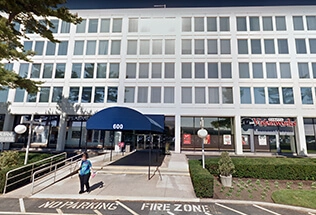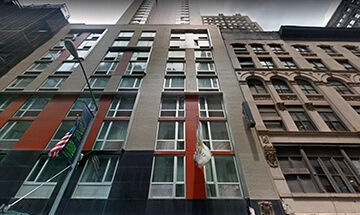Personal injury claims are some of the most common in New York State and throughout America. When one person or party injures another, the victimized party often has the right to sue the at-fault party for compensation, typically to cover the cost of medical bills and associated expenses.
However, most personal injury lawsuits don’t go to court. In fact, when you file a personal injury claim against a negligent or at-fault party, it’s more likely you’ll inspire them to seek out a monetary settlement.
Still, there are cases where a court trial is the only worthwhile option. Read on to determine how often personal injury claims go to court or contact Schwartzapfel Lawyers today at 1-516-342-2200 for more information and a free case evaluation.
Percentage of Personal Injury Cases That Go To Court
No matter the details, most personal injury cases do not go to court. In fact, according to official statistics from the U.S. Department of Justice, only about 3% of all personal injury cases go to trial. Of those cases, 2% are decided by a judge and 1% is decided by a jury.
In other words, very few personal injury cases see a court date. Accordingly, if you file a personal injury lawsuit against another person, a company, your employer, or someone else, odds are that it will be settled out of court rather than via a verdict from a judge or jury.
Why Do So Few Cases Go To Trial?
There are many important reasons why few personal injury cases go to trial. On the news, we most often hear about the high profile or publicly important personal injury cases. However, those cases are few and far between, given the hundreds of thousands to millions of cases filed every year.
Expenses and Time Requirements
First, most lawsuits (and court trials) cost a lot of time and money for everyone involved. This is true for personal injury cases, workers’ compensation cases, auto accident cases, and any other case you can imagine.
Part of this involves attorney fees. For example, both sides in a personal injury lawsuit probably hire attorneys to prepare their paperwork, gather evidence, and present it compellingly to a court.
Attorney fees can be quite high, although quality personal injury attorneys usually work on contingency (meaning you don’t pay a dime unless your attorneys win you compensation — Schwartzapfel Lawyers operates under this principle).
Then, there are court fees, filing fees, and various other expenses. Those called to a court trial have to take time off work. Companies or other individuals accused of causing personal injuries must also essentially lose money by not attending to their core businesses.
Next, add in the time costs typical of personal injury lawsuits. Note: Even in cases that seem cut and dried, personal injury lawsuits can take many months (if not years) to fully resolve. That’s because it takes a lot of time to gather evidence, prepare it, settle on a court date that works for all the involved parties, and more.
Bottom line: Court cases, regardless of the outcome, take a lot of time and money, which makes them unattractive to most.
Clear Evidence
Additionally, court cases require a high standard of evidence to prove guilt. In the U.S. legal system, accused parties are innocent until proven guilty. Even if you believe that you have sufficient evidence against a negligent party for, say, an auto accident, that may not be the case when you present your evidence to the court.
You have to gather and prepare a lot of evidence to prove guilt beyond a reasonable doubt, as any knowledgeable legal professional will tell you. In contrast, if you can provide enough evidence to convince a negligent party that you can prove their guilt in court, they may decide to settle out of court.
In many cases, that’s a lower bar of evidence that is required for proving guilt in court. For more on this and related topics, call Schwartzapfel Lawyers at 1-516-342-2200 now.
Minimize Losses
Those accused of negligence, malicious behavior, and/or other fault may opt to settle out of court in order to strategically minimize their losses.
Say that you are injured on the job because of employer negligence. Rather than deal with the expenses of a court trial — and risking the possibility of being proven absolutely negligent — your employer may instead choose to cut its losses and settle out of court.
Because settling out of court often results in a lower monetary award (i.e., less financial compensation) than would have been directed from a court verdict, the negligent party is, in a sense, allowed to escape” the more severe consequences they would have faced otherwise.
Why Do Some Personal Injury Cases Go To Trial?
Despite the difficulties of successfully presenting a case in court, many personal injury claims do go to trial. There reasons why you or your attorneys may decide to press for a court trial and deny settlement offerings are many. For your convenience, some of these considerations are outlined below.
Legal Precedent Concerns
First, a defendant’s insurance company may force a case to go to trial even if it costs them money in the long run. Why? They may want to not make a precedent for settling the personal injury claim you file against them.
Legal precedent is incredibly important. In some cases, it can establish a baseline decision” for future similar cases. If an insurance company does not wish to pay you money, they may take the fight to court to ward off future plaintiffs who have been injured and/or suffered damages under similar circumstances.
Belief That One Side or the Other Will Win
When a defendant’s insurer or an insurance company believes that they will win a lawsuit outright, they may not think it in their interest to make you a worthwhile settlement offer.
This is more common in cases where there isn’t a lot of obvious evidence available to both sides. You can still win these personal injury cases, of course, but it may require more investigatory legwork by your legal advisers.
On the flip side, you might refuse a settlement from an accused party because you think you can win a court trial outright. If your lawyers believe you have a great chance of winning a lawsuit, they will likely recommend this path.
Grounds of Principle
Some injured parties decide to push forward with personal injury court cases out of principle. For example, maybe you are tired of your employer mistreating you and your fellow employees, so you decide to press for a court case even though it would be easier to settle out of court.
In your mind, it’s not about securing damages; it’s about sending a message. The reverse can also be true, of course. A defendant in a personal injury case may decide not to offer a settlement out of court because they want to defend themselves fully in court and send a message to anyone who may wish to falsely accuse them of ill behavior in the future.
For a free case evaluation, call Schwartzapfel Lawyers now at 1-516-342-2200. Alternatively, visit us online to allow us the privilege of fighting for you™!
Compensation Demands/Requirements
Lastly, a court case may still be necessary if you have high medical bills. For instance, if you are injured by a negligent party and the insurance company offers you a low settlement amount, that may not be enough to cover your medical costs. In that case, you may have no choice but to refuse the settlement amount and push for a court trial to secure a larger monetary sum.
Should You Push for Your Case to Go to Court?
Given the low frequency of personal injury claims settled in a court trial, it can be tough to know whether it’s worth pushing for a full court trial or if you should accept the first settlement that the defendant offers. You can decide one way or the other by considering two major factors.
Rely on the Advice of Your Counsel
The first factor naturally depends on the advice of your legal representatives. If your personal injury attorneys recommend that you accept a settlement from a defendant, you’d be wise to heed their advice.
If, however, they tell you that you should push for a full court case, you should also stick to their advice. Your attorneys may believe they have a rock-solid case that could result in higher compensation for you than if you settle out of court.
Knowledgeable attorneys like Schwartzapfel Lawyers know the ins and outs of the court system and have likely successfully handled cases like yours in the past. We can tell you whether your case is likely to succeed in a court environment. Contact us today for a free case evaluation online or at 1-516-342-2200.
Can a Settlement Be Worthwhile?
The second factor is determining whether the offered settlement is worthwhile. If, for instance, the defendant in the case offers you a measly settlement that doesn’t even begin to cover your medical costs, you may wish to push for a court trial even if it costs you more in the short term.
Contact Schwartzapfel Lawyers Today
While your personal injury case may not go to court, that doesn’t mean you shouldn’t file a lawsuit. Filing a lawsuit can inspire the at-fault party to pay you the money you are entitled to so that you can cover your medical bills and focus on what’s most important: getting better.
Additionally, the right legal team can tell you whether your case is likely to go to court or reach a settlement in a timely manner. Note here: Your personal injury claim can still be successful, even if it doesn’t go to court.
To determine the best legal path given your case’s specifics, consider the award-winning firm of Schwartzapfel Lawyers, where our clients are treated like family because that’s what they are; and as family, they’re worth fighting for every step of the way.
For a free case evaluation and so much more, contact us today at 1-516-342-2200!
Sources:
Schwartzapfel Lawyers, P.C. | Fighting For You™™
Bureau of Justice Statistics | U.S. Department of Justice
How Much Can I Get for My Personal Injury Case and How Long Will It Take? | Nolo
precedent | Wex | US Law | LII / Legal Information Institute


















